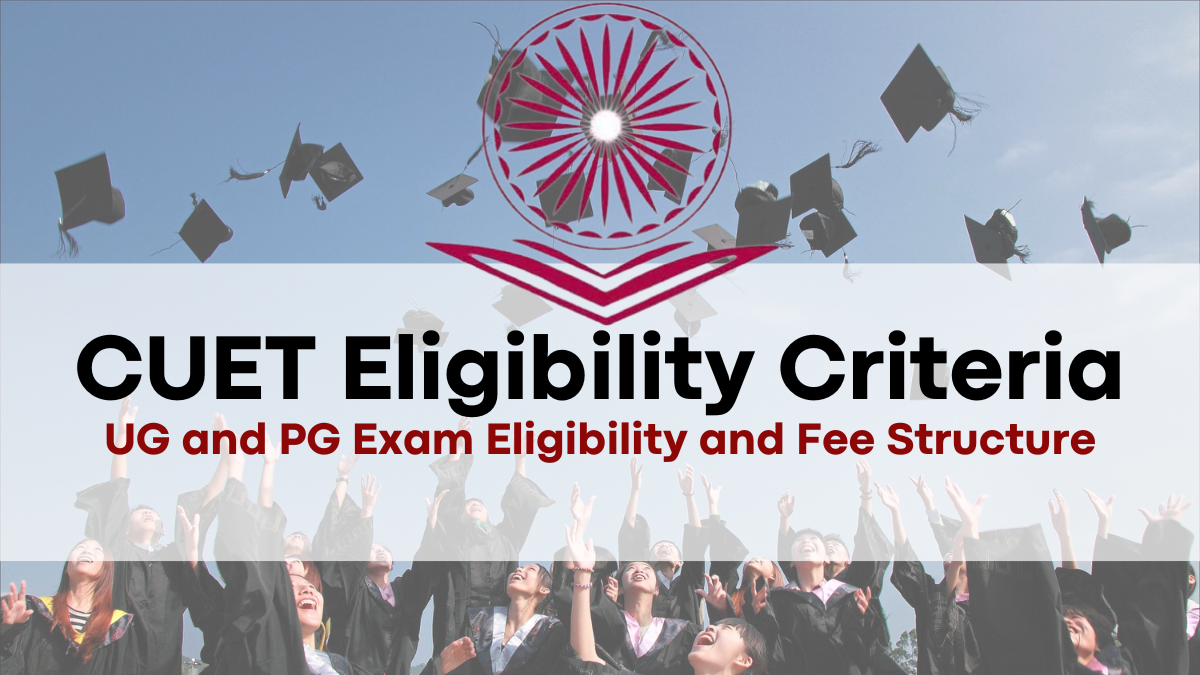The Common University Entrance Test (CUET) is an entrance examination for admission to undergraduate, postgraduate, and research programs in central universities and other participating institutions across India. The National Testing Agency (NTA) administers the CUET to streamline the admission process and ensure merit-based selection.
Starting from the academic year 2025, CUET will expand its reach and include provisions for multiple attempts annually, allowing students to enhance their scores for better opportunities. This article comprehensively guides CUET 2025 eligibility criteria, registration process, participating colleges, and reservation policies.

CUET Eligibility Criteria
| Topic | Details |
|---|---|
| Official Website | cuet.samarth.ac.in |
| Registration Start Date | February 9, 2025 |
| Eligibility | Varies for UG, PG, and PhD programs (based on minimum percentage and academic qualifications) |
| Exam Mode | Online (Computer-Based Test) |
| Reservation | As per Government of India norms (SC, ST, OBC, PwD categories) |
| Participating Universities | 20+ Central Universities and other institutions |
| Programs Offered | UG, PG, Integrated, B.Ed, M.Phil, and PhD programs |
What is CUET 2025?
The CUET 2025 is a centralized entrance test that provides a uniform platform for admissions to undergraduate and postgraduate programs across India. Managed by the NTA, it reduces the burden of multiple entrance exams for students and ensures a transparent merit-based process for participating universities.
The test offers flexibility by allowing students to attempt the exam twice a year and aims to align with global admission standards.
Key Highlights of CUET 2025
- National Level Exam: Applicable to 20+ central universities and participating institutions.
- Eligibility Flexibility: Criteria vary based on programs and universities.
- Multiple Attempts: Beginning 2025, CUET will allow two attempts annually.
- Reservation Policy: Follows Government of India norms for SC, ST, OBC, and PwD categories.
- Comprehensive Courses: Offers admission to UG, PG, Integrated, and Research programs.
Eligibility Criteria
The eligibility requirements for CUET 2025 differ based on the level of study (UG, PG, or Doctorate). Candidates must meet these requirements to qualify for the exam and secure admission.
Undergraduate (UG) Programs
- Educational Qualification:
- General Category: Minimum 50% marks in Class 12.
- SC/ST Category: Minimum 45% marks in Class 12.
- Subject Requirements: Candidates must have studied specific subjects relevant to the program they are applying for.
- 12th Grade Passing Certificate: Students in Class 12 can apply, but they must present a passing certificate at the time of counseling.
- Failed Subjects: Applicants with failed subjects in Class 12 are not eligible.
Postgraduate (PG) Programs
- Educational Qualification:
- General Category: Minimum 55% marks in graduation.
- SC/ST/OBC/PwD: Minimum 50% marks in graduation.
- Program-Specific Criteria: The cutoff percentages may vary for OBC candidates and program-specific requirements.
Doctorate (PhD) Programs
- Educational Qualification:
- General Category: Minimum 55% marks in postgraduate degree.
- SC/ST/PwD: Minimum 45% marks.
- OBC: Minimum 50% marks.
- Relevance: The postgraduate degree must be in the relevant field of study.
Nationality Requirements
- Indian Citizens: All applicants must be Indian nationals.
- Tibetan Refugees: Those who entered India before January 1, 1962, with the intention of permanent settlement.
- Migrants from Neighboring Countries: Includes permanent migrants from Nepal, Bhutan, and Sri Lanka, and Indian-origin people from Vietnam, Kenya, Uganda, and other African nations.
Reservation Policies
CUET adheres to the reservation norms set by the Government of India to ensure equal opportunities for underprivileged and marginalized communities.
Reservation Categories
| Category | Reservation Percentage |
|---|---|
| Scheduled Castes (SC) | 15% |
| Scheduled Tribes (ST) | 7.5% |
| Other Backward Classes (OBC – Non-Creamy Layer) | 27% |
| Persons with Disabilities (PwD) | 5% |
Applicants must provide valid category certificates during the admission process to claim reservation benefits.
Participating Universities
CUET 2025 is accepted by 20+ central universities and other institutions. Here are some major universities with their codes:
| University Name | Code |
|---|---|
| University of Delhi | DU |
| Jawaharlal Nehru University | JNU |
| Central University of Haryana | CUHAR |
| Central University of Punjab | CUPUN |
| Central University of Rajasthan | CURAJ |
Visit the official CUET website for the complete list of participating institutions.
Courses Offered
CUET 2025 provides admission to a diverse range of programs, including:
- Integrated and Undergraduate Programs: 47 courses.
- Postgraduate, B.Ed, and Diploma Programs: 225 courses.
- M.Phil and PhD Programs: 136 courses.
Applicants should review the program-specific requirements on the respective university’s website before applying.
Important Points for CUET Applicants
- Each participating university sets its own eligibility and admission criteria.
- Admission depends on CUET scores and Class 12 board results for UG programs.
- No upper age limit applies, but minimum educational qualifications must be met.
- Reservation policies as per Government of India norms apply to admissions.
FAQs
Who conducts CUET 2025?
CUET 2025 is conducted by the National Testing Agency (NTA).
Is there an age limit for CUET 2025?
No, there is no upper age limit, but candidates must meet the educational qualification requirements.
Can students in Class 12 apply for CUET 2025?
Yes, Class 12 students can apply. However, they must provide a passing certificate during counseling.
How many times can I attempt CUET 2025?
There is no restriction on the number of attempts as long as eligibility criteria are met.
What is the reservation policy for CUET 2025?
CUET follows the Government of India’s reservation norms:
- SC: 15%
- ST: 7.5%
- OBC (Non-Creamy Layer): 27%
- PwD: 5%
Which universities accept CUET scores?
More than 20 central universities, including Delhi University, JNU, and BHU, accept CUET scores.
Click here to know more.